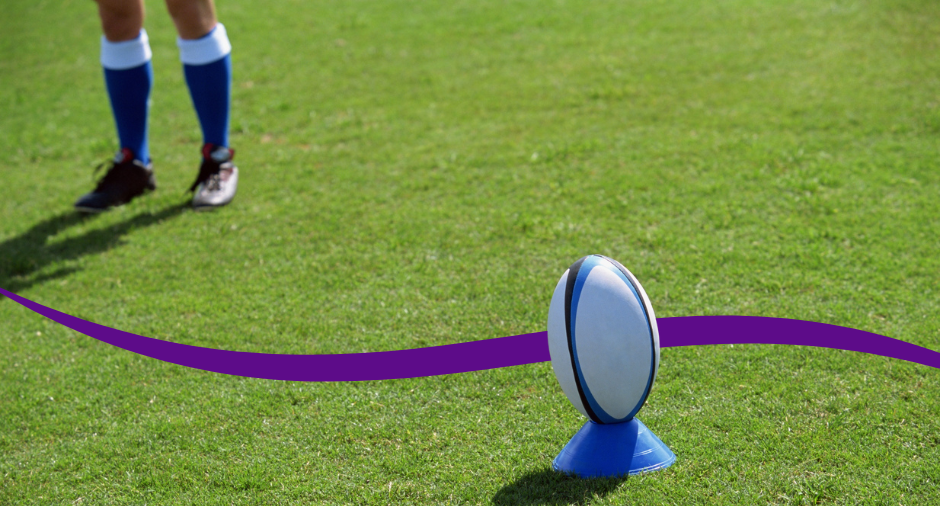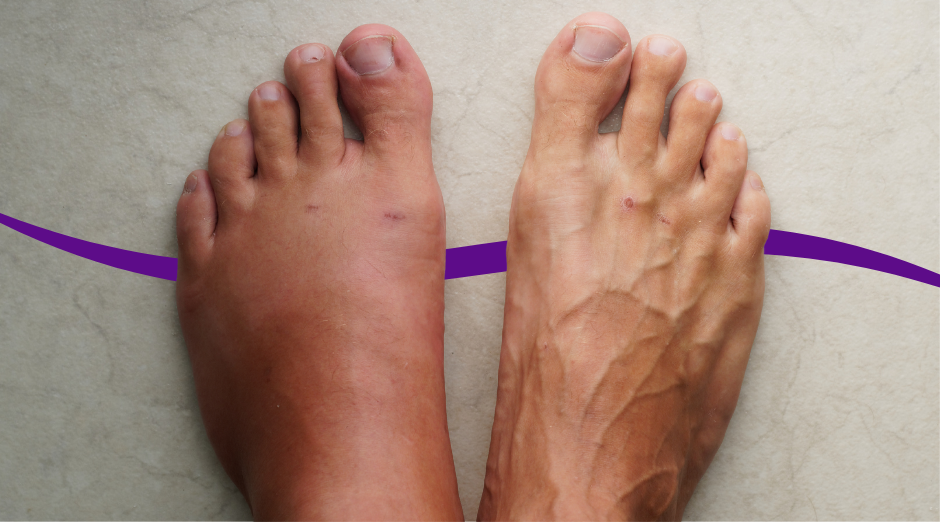

Love the idea of a vacation somewhere warm and beautiful, but hate the reality of your feet swelling after walking, standing or sitting? Swollen feet and ankles can quickly dampen any holiday, leave you struggling to find shoes that fit, and diminish your comfort and experience when travelling.
Knowing what causes and contributes to why your feet and ankles swell in the heat goes a long way to preventing
it. Here’s everything you need to know about heat oedema, known as heat-related foot and leg swelling.
It’s the heat from your environment that leads to a fluid buildup. Heat can cause blood vessels to expand (dilate), which is actually your body’s natural cooling device, helping you regulate your temperature so you don’t overheat. When blood vessels expand, they allow more blood flow close to the skin, helping heat escape from the body. Unfortunately, this expansion can also leak fluid into the surrounding tissues, causing your feet, ankles, and sometimes even your legs (usually the lower legs) to swell.
Long periods of sitting or standing, like catching flights or after a day of sightseeing or hot baths, can worsen the swelling. Gravity pulls fluid downwards, and in hot weather, your body’s usual mechanisms for moving fluid back up to the heart can slow down. And just like that? Your swelling starts or worsens.
Yes! Even if you’re going to be surrounded by non-stop hot weather and humidity, there are several things you can do to help prevent foot and leg swelling or reduce its severity. Here are our simplest favourites:
Wondering why your feet are swollen on holiday in warm weather but your friends' feet aren’t? There are certain factors that make some people more susceptible to foot swelling in the hot weather:
Swelling is generally easy to notice, but the severity can vary. Here are the common signs:
Note: if you notice your swelling growing worse and worse, or it’s accompanied by other symptoms like shortness of breath, chest pain, pain or extreme redness, please be seen by a doctor ASAP.
A little preparation can go a long way in preventing and managing foot swelling on your holiday:
If there are a few extra items (beyond compression socks) that may help if your feet tend to swell, it could be:
Most cases of heat-related foot swelling resolve with rest, raising your feet (like on the couch, ideally above the level of your heart) with cold water and some air conditioning. We’d recommend taking the next step to seek medical help if:
Drinking lots of water and staying hydrated is non-negotiable, but prolonged sitting or standing, hot weather, and poor circulation and issues can all still lead to swelling, even for the most well-hydrated person.
Try combining hydration with movement and compression socks to improve blood circulation to maximise your chances of swelling (or preventing it from developing).
Eating potassium-rich foods like bananas, leafy greens, and avocados can help balance fluids and reduce swelling. As we mentioned earlier, avoid high-sodium foods, which can lead to fluid retention.
Aim for at least 15-20 minutes, ideally with your feet raised above heart level. Doing this a few times throughout the day can significantly reduce puffiness. It’s even better if you have your compression socks on and sit in a relaxed environment (but not essential).
Swelling in just one foot can sometimes indicate a deeper issue, such as an injury, infection, or blood clot. If your feet swell in the heat or swelling is persistent or accompanied by pain or redness, please seek medical advice.
Does wearing thongs contribute to swollen ankles and feet?
Flip-flops provide minimal support, which can strain your feet and potentially worsen swelling. Supportive sandals or lightweight shoes with arch support are better options for preventing swollen feet.
Yes, having cooling foot spray on hand can help give you some relief from the discomfort of swollen feet and ankles and stop foot swelling.
You should avoid hot baths because they have the same effect as hot weather - they cause heat oedema as your body temperatures rise promoting fluid buildup and swelling. Keep your bath at your body temperature (or cooler). We love cold water baths.
| Monday | 7:40am - 6:00pm |
| Tuesday | 7:40am - 6:00pm |
| Wednesday | 7:40am - 6:00pm |
| Thursday |
7:40am - 6:00pm |
| Friday | 7:40am - 2:00pm |
| Saturday | CLOSED |
| Sunday | CLOSED |
Ground Floor, 344 Queen Street,
Brisbane City QLD 4000
| Monday | 7:40am - 6:00pm |
| Tuesday | 7:40am - 6:00pm |
| Wednesday | 7:40am - 6:00pm |
| Thursday |
7:40am - 6:30pm |
| Friday | 7:40am - 5:00pm |
| Saturday | 7:40am - 4:30pm |
| Sunday | CLOSED |
Newmarket Village, 114/400 Newmarket Rd, Newmarket QLD 4051